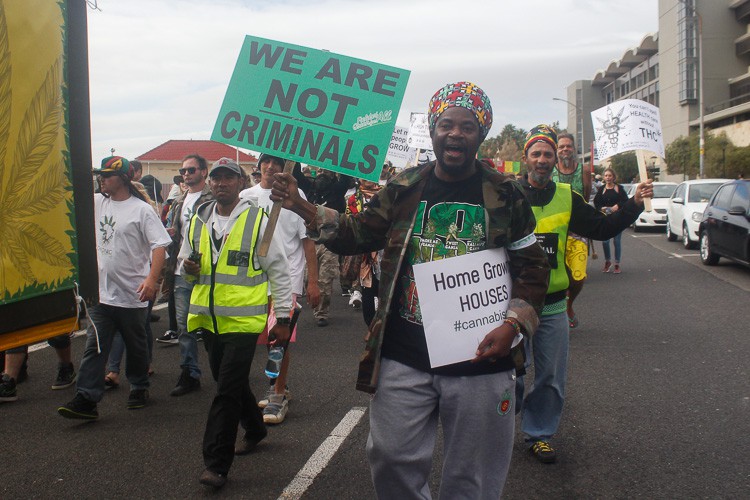“We want the right to carry cannabis in our pockets like a person can carry cigarettes”
Across the world, people march for decriminalisation of weed
Many supporters of the decriminalisation of cannabis marched through Cape Town city centre on Saturday. This global event happens in cities across the world on the first Saturday of May. It aims to promote cannabis culture and legalisation.
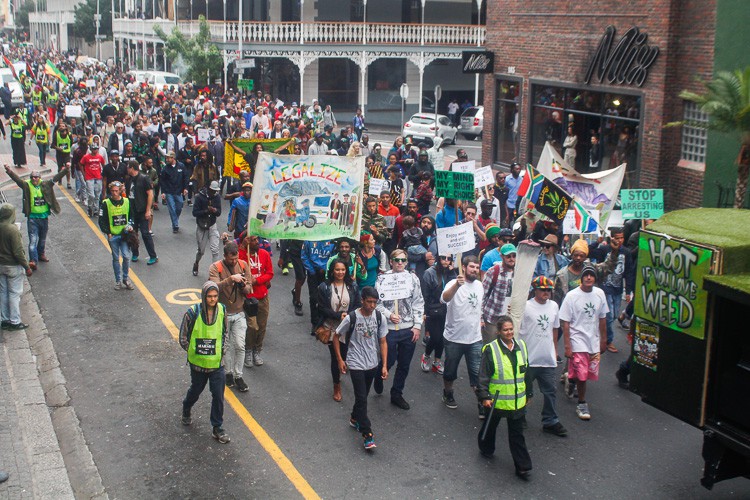
People smiled gleefully as they walked through the streets smoking copious amounts of cannabis through all sorts of crafty contraptions. A truck led the way, blaring tunes by artists such as Bob Marley, Sublime and other reefer classics like Pass the Dutchie. An MC on top of the van rapped to some of the music and shouted pro ganja slogans throughout, keeping the vibe upbeat and somewhat party-like.
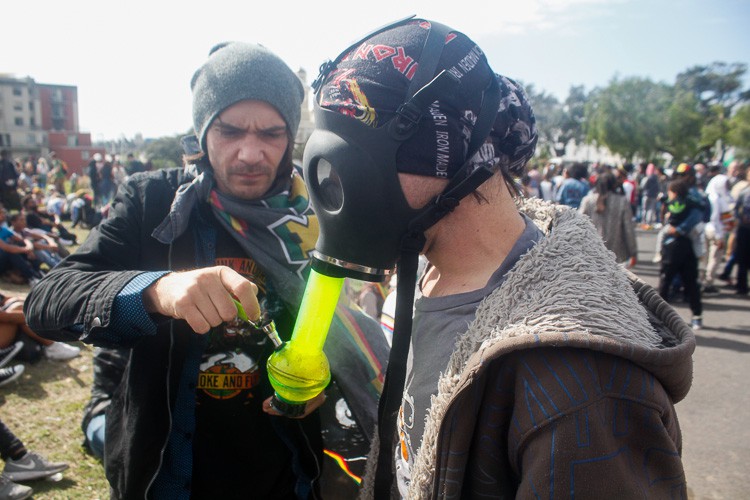
Jeremy Acton, leader of the Dagga Party, said that he has smoked marijuana for 30 years, and joined the march to be with “the people of my culture”. Acton was one of the applicants in a Western Cape High Court case in which Judge Dennis Davis ruled that dagga could be used and cultivated in your home privately.
Despite this landmark judgment, Acton wants the law to go further, and to be similar to those of alcohol and cigarettes. “We want the right to carry our cannabis in our pockets … like a person can carry cigarettes,” he said. We would also like to “smoke our cannabis in smoking zones in various public and social facilities”, said Acton.
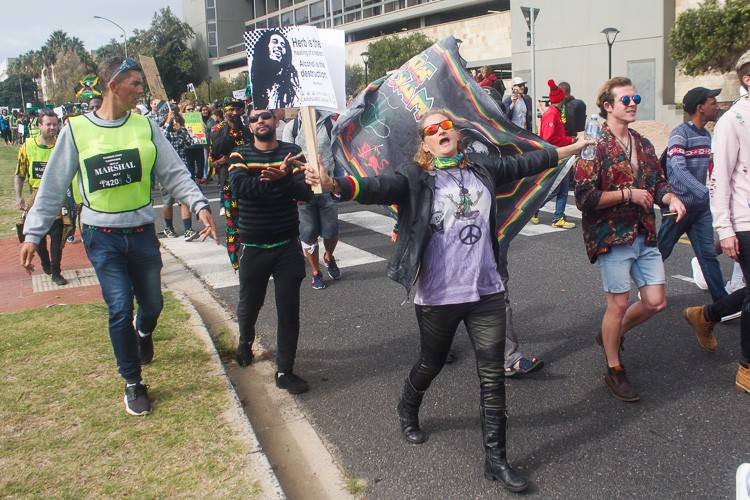
Acton said that cannabis is a resource of the future. “Everything that we lack today could be provided by cannabis. Whether it’s the food from the seed or the money that is generated in [the] manufacturing industry and clean energy”, said Acton.
In cannabis circles, Acton is somewhat of a celebrity. Throughout the march, people would come over to greet him, take pictures together and even show off some of their prized bud.
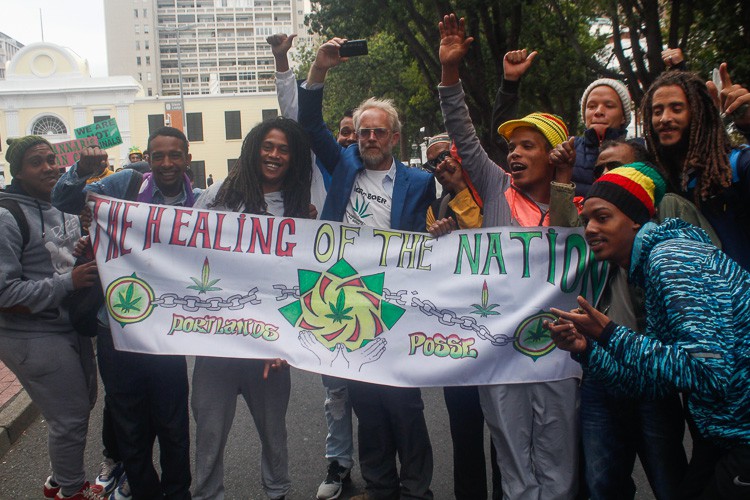
Jo Hout, lead organiser of the march, said that although the court case hasn’t completely legalised marijuana just yet, it’s “great” because “people have become comfortable. They’re talking about it. They’re making jokes about it.” He said this was the 17th cannabis march.
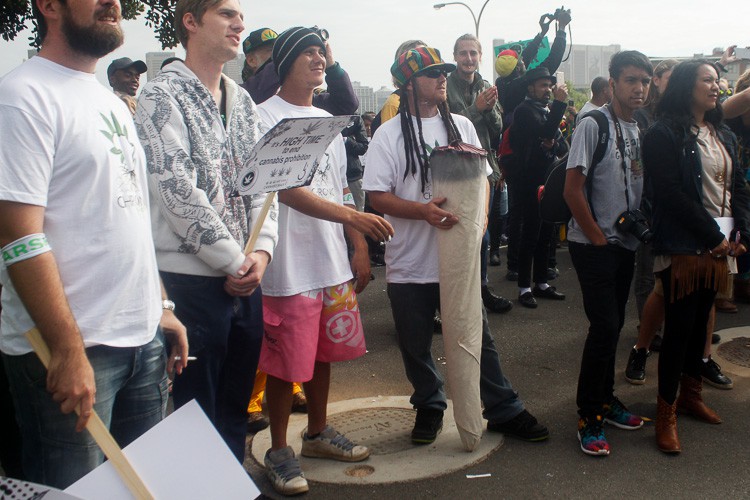
Moses Julius Kapa, a Rastafarian from Marcus Garvey in Philippi said that he joined the march because he wants marijuana decriminalised. Kapa said that despite the court ruling the police “still brutalise us and arrest the people”.
A handful of police vehicles kept watch during the march and although many supporters were lighting up dagga, for this one public event, no action was taken.
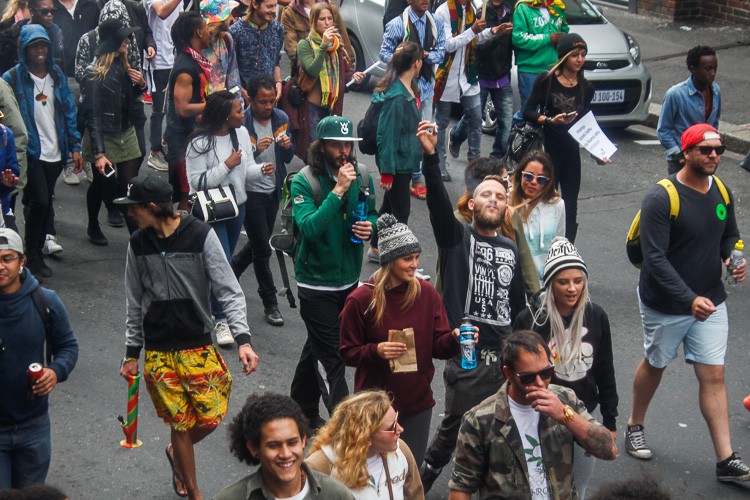
CORRECTION: Originally the article said “Over 500 people” participated in the march, an estimate we were criticised for. Based on this video we revised our article. Following several efforts to count the crowd, we estimate that the number of protesters was between 1,200 and 2,200.
Support independent journalism
Donate using Payfast

Don't miss out on the latest news
We respect your privacy, and promise we won't spam you.
Next: Land occupiers in Grabouw demand services
Previous: Gauteng learners demand replacement of asbestos buildings
Letters
Dear Editor
All the Cannabis Churches, the Rastafarians and the Native American Churches included are joining together as OneLove for our Holy Plant. We should have the right to grow our holy sacrament since we believe in homegrown with No GMO and No Pesticides this would be the only holy way we could prove our sacrament, our churches should be able to grow Hemp and or Cannabis to help provide funding for our Mission of Good :) Peace Love and Happiness to Everyone :) World Wide. OneLove.
© 2017 GroundUp. 
This article is licensed under a Creative Commons Attribution-NoDerivatives 4.0 International License.
You may republish this article, so long as you credit the authors and GroundUp, and do not change the text. Please include a link back to the original article.

